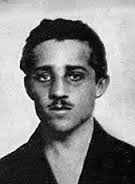The Guns of August
Although the First World War officially started on 28 July 1914, what we now know as ‘the Western Front’ didn’t start until 4 August when the Germans invaded neutral Belgium.
There’s probably been more written about the causes of this war than just about any other subject in modern history, Barbara Tuchman’s The Guns of August being a good example. For this reason I’m not going to go into that sort of discussion here, except to note that the event that’s generally agreed upon as the proverbial straw that broke the camel’s back, was the assassination of Arch Duke Franz Ferdinand of Austria (and his wife Sophie) by a Serbian nationalist called Gavrilo Princip.
This act was part of a plot by Serbian military officers, conspiring to turn the southern Slavic provinces of the Austro-Hungarian empire into a united Greater Serbia. The consequences of their act were far beyond what they could have foreseen, but were ultimately pretty successful given that the Kingdom of Serbia was created in December 1918, just a few years and about 37 million casualties later.
Serbia paid a high price for its independence. Approximately 725,000 people died in the war, over 16% of the population, which was the highest proportion of any country in the conflict.
What interest me about this is the connection to an earlier post about the role of the Serbs in delaying the German invasion of Russia 30-odd years later, a delay which had a decisive effect on the German army’s failure to capture Moscow.
Clearly you mess with the Serbs at your peril, something NATO kept in mind when it decided to limit its involvement in Yugoslavia in the 1990s to aerial attacks. Some of the leaders of those Serbian forces are only now nearing the end of their trials at the International Criminal Tribunal for the former Yugoslavia in the Hague.
Anyway, thanks to the actions of the Serbs, by this date in 1914, the major powers of Europe had been handed the excuse they had been waiting for to declare war on each other, and more than 40 countries around the world would be drawn in before it ended.
p.s. it may have struck you as odd that we call the war in France the ‘Western Front’, when clearly it was in the east for the French and British. At the time, the British referred to it simply as ‘The Front’, and I can’t be sure, but I suspect we derive the modern title from Erich Maria Remarque’s brilliant book ‘All Quiet on the Western Front’, which ends with the report “…and from the Western Front, no news”.
Posted in: News
